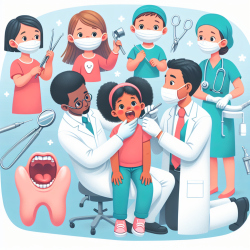As a practitioner dedicated to the well-being of children and passionate about data-driven decision-making, it's crucial to stay updated with the latest research in our field. The recent study titled "Core Values in the Traditional Provision of Hearing Health Care" offers valuable insights that can enhance our practice. This blog aims to summarize the key findings of the study and discuss how you can implement these core values to improve your skills and outcomes for your patients.
Understanding Core Values in Hearing Health Care
The study utilized value-sensitive design (VSD) methodology to identify core values in current hearing health care service delivery. Through qualitative content analysis of questionnaires, clinical practice guidelines (CPGs), and professional ethics documents, the study identified three primary categories of values:
- Instrumental Values: These include accuracy, cost, design, efficiency, evidence-based practices, objective benefit, and safety.
- Patient Use Values: These encompass comfort, ease of use, health, satisfaction, self-efficacy, and subjective benefit.
- Moral Values: These cover access to care, autonomy, privacy, equity, and professional duties.
Key Findings
The study highlighted that subjective benefit, professional duties, and self-efficacy were the most commonly coded values in the documents representing traditional audiology. These values should be central to considerations for new hearing health care models and technologies. Here's a deeper look at these key values:
- Subjective Benefit: This value emphasizes the perceived improvement in audibility, intelligibility, and overall quality of life from the patient's perspective.
- Professional Duties: This value focuses on adherence to professional standards, ethical guidelines, and continuous education to ensure high-quality care.
- Self-Efficacy: This value highlights the importance of empowering patients to manage their hearing health, promoting independence and confidence in using hearing aids.
Implementing Core Values in Your Practice
To enhance your practice, consider the following steps to integrate these core values:
- Focus on Subjective Benefit: Regularly seek feedback from your patients about their experiences and perceived benefits of their hearing aids. Use this feedback to tailor your interventions and improve patient satisfaction.
- Uphold Professional Duties: Stay updated with the latest clinical guidelines and ethical standards. Engage in continuous professional development to ensure your skills and knowledge are current.
- Promote Self-Efficacy: Educate your patients on how to use and maintain their hearing aids effectively. Encourage them to take an active role in their hearing health, which can lead to better outcomes and increased satisfaction.
Encouraging Further Research
The study also underscores the importance of ongoing research to address barriers to hearing health care, such as access and cost. As practitioners, we should advocate for and participate in research initiatives that aim to develop innovative solutions for these challenges.
By implementing these core values and staying engaged with current research, we can significantly improve the outcomes for our patients and advance the field of hearing health care.
To read the original research paper, please follow this link: Core Values in the Traditional Provision of Hearing Health Care.










